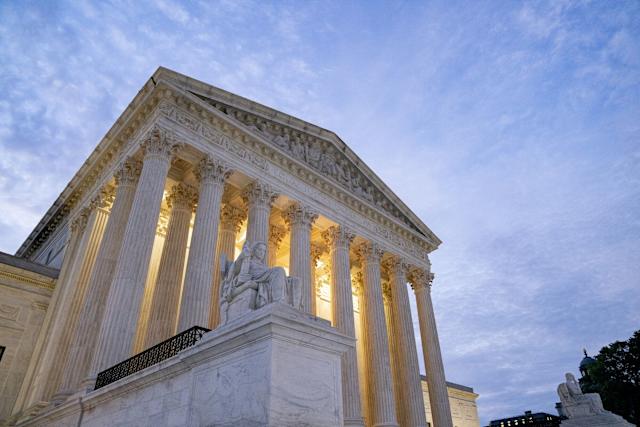Major US Companies Challenge Bidens Tariffs on Chinese Goods in Supreme Court

In a move that could have significant implications for global trade and the US economy, a group of major US companies, including Apple Inc., Microsoft Corp., and Amazon.com Inc., have filed a petition with the US Supreme Court urging a review of a lower court ruling that found President Joe Biden’s tariffs on Chinese goods to be unconstitutional.
The companies argue that the tariffs violate the 1977 International Emergency Economic Powers Act (IEEPA) and should be struck down. They claim that the tariffs have had a significant impact on their businesses and consumers across the nation, and that the normal appellate process should not be followed in this case.
The lower court ruling, issued by US District Judge Rudolph Contreras in Washington, found that Biden exceeded his authority under IEEPA when he imposed the tariffs. However, the judge limited his ruling to the specific companies that had brought the suit.
The companies contend that the IEEPA does not authorize the president to impose import taxes and that the language of the law only allows for “regulation” of imports, not taxation. “The power to regulate is not the power to tax,” they wrote in their petition. “The tariffs at issue here are not authorized by IEEPA and therefore are unconstitutional.”
The White House has not yet commented on the petition, but a spokesperson for the administration said in a statement that they “strongly disagree” with the lower court ruling and will continue to defend the tariffs in court.
The case is one of several legal challenges to Biden’s tariffs on Chinese goods, which were imposed in response to concerns about China’s intellectual property practices and other trade issues. The companies involved in the case include some of the largest and most influential in the US economy, and their decision to challenge the tariffs could have significant implications for other businesses and consumers as well.
As global trade tensions continue to escalate between the US and China, with both countries imposing tariffs on each other’s goods in an effort to protect their own industries, this case is likely to be closely watched by both business leaders and policymakers alike. The outcome of this legal challenge could set a precedent for future trade disputes and potentially shape the course of global trade for years to come.
This Supreme Court showdown highlights the perplexing political crossroads that continue to shape US-China trade relations, with major firms attempting a bold move against Biden's tariffs - yet also reflecting on delicate balancing acts for American business interests and national security.
The Supreme Court Challenge from Major US Companies Testifies to the Economic Disparities that Arise due To Biden's Tariffs on Chinese Goodsand Reiterates The Need for Comprehensive Dialogue and Fairer Trade Practices.
The upcoming Supreme Court case on US firms' challenge to Biden tariffs targeting Chinese goods is a pivotal moment for both international trade relations and domestic industries, potentially revealing the delicate balance between national security interests versus global market dynamics.
The Supreme Court case involving US companies challenging Biden's tariffs on Chinese goods marks an unprecedented juncture in global trade relations, raising questions about the 4th Amendment to free enterprise and whether nation-state protections will prevail over market forces.
The Supreme Court's consideration of major US companies challenging President Biden’s tariffs on Chinese goods represents a pivotal juncture in the ongoing trade disputes between these two economic superpowers, potentially setting working precedent for global tariff litigation moving forward.











